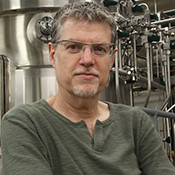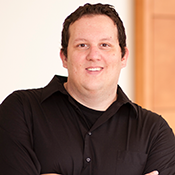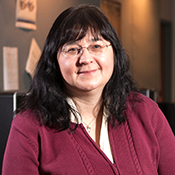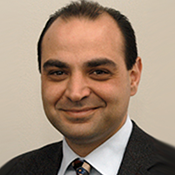CBS faculty partner with international colleagues to establish a predictive enzyme database.
Most Minnesotans would welcome a January respite from winter. A team of BTI faculty got one — in snowy Switzerland.
CBS researchers Larry Wackett and Mikael Elias (BMBB/BTI) CSE professor Al Aksan, postdoc Asim Bera, and graduate student Diego Escalante met with colleagues there to work on a database that uses computational modeling to predict enzymatic reactions. The project is funded in part by a MnDRIVE transdisciplinary grant awarded to those researchers along with Carrie Wilmot (BMBB/BTI).
The goal of the RAPID algorithm (Reactive Activity Product IDentification) is to take broadly specific enzymes and to identify a set of chemicals that are new targets of their biochemical activity. Researchers using the database will be able to quickly generate many potential enzyme-chemical pairs that would previously have taken weeks if not months of laboratory testing.
“We’re taking broad-specificity enzymes that have been well studied, and saying, ‘We know the enzyme works on these 200 chemicals, but now through docking studies and computational modeling, I think it would work on these 2000 additional ones,’” Wackett says. “If you have a broad-specificity enzyme that can do hundreds of reactions, that’s a commercial reagent.”
“We think this database will allow us to better predict and use microbial enzymes for bioremediation and green chemistry." - Larry Wackett
The U of M team traveled to Switzerland to meet with Kathrin Fenner, a researcher in Zurich who had completed a sabbatical in Wackett’s lab, as well as a German computer science research group. Fenner has taken control of the Biocatalysis and Biodegradation Database, one that Wackett and U of M professor Lynda Ellis began 21 years ago that is still being used — and added to — today.
“We’d like to take our knowledge of that database to the next step,” Wackett says. “Working together is a natural way for us to learn from each other because our end goals are different.”
Though an international project, Wackett said the bulk of the RAPID database work would be done at the U of M. “This is a MnDRIVE project and we feel like it should be developed and housed here,” he says.
– Sarah Perdue



